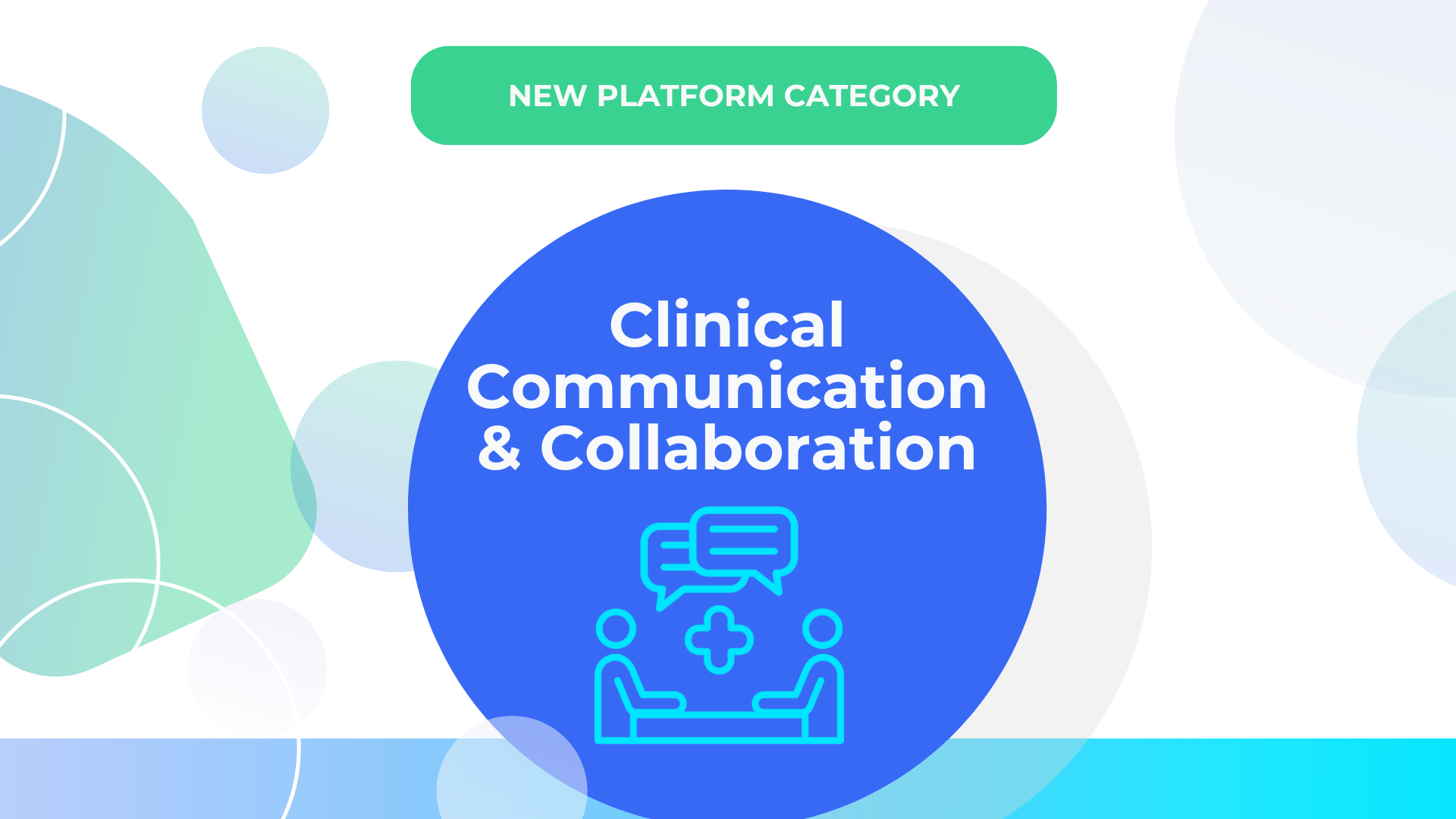What are clinical communication and collaboration platforms, and how do they differ from clinician scheduling tools?
Clinical communication and collaboration (CCC) platforms support care team conversations, notifications, and data sharing. Unlike scheduling tools or provider portals, CCC platforms enable care team members to send and receive secure, HIPAA-compliant communications between other care team members via multiple methods, including text, chat, video and voice calls.
Picture a mobile-friendly app replacing outdated methods such as voicemails or static messages in charts. CCC platforms provide a secure space for doctors, nurses, and caregivers to exchange messages and notifications and even share relevant patient data in real time. This eliminates delays and frustrations, allowing the care team to collaborate more effectively across different settings, from clinics to emergency rooms to virtual consultations.
CCC platforms seamlessly integrate with electronic health records (EHRs), creating a centralized bi-lateral information sharing hub for all patient-related communications, including medical histories, medications, and treatment plans, readily accessible to authorized care team members. This holistic view empowers clinicians to make informed decisions quickly and efficiently, ultimately improving patient outcomes. CCC solutions provide the ability for medical professionals to manually or automatically search all care team members on the platform, and then communicate with the appropriate care team member assigned to each patient.
In essence, CCC platforms bridge the communication gap within the care team, fostering collaboration and ensuring all caregivers have the information they need to deliver the best possible care.
Clinical communication and collaboration (CCC) platforms and clinician scheduling tools serve distinct purposes in healthcare delivery, even though they might seem similar at first glance. Here’s a breakdown of the key differences:
Focus:
- CCC Platforms: Real-time communication and information sharing specifically for patient care coordination.
- Clinician Scheduling Tools: Appointment scheduling and management for individual clinicians.
Function:
- CCC Platforms: Facilitate secure messaging, notifications, data exchange, and EHR integration for improved collaboration across care settings. Real-time HIPAA-compliant texting allows providers and clinicians to collaborate on patient cases, send requests, and receive updates for information requests, lab and medication orders, and other time-sensitive tasks. This speeds up time on making diagnoses.
- Clinician Scheduling Tools: Manage appointment booking, availability, and reminders for clinicians.
Benefits:
- CCC Platforms: Improved patient outcomes due to faster response times, message escalation, better care team collaboration, and streamlined workflows.
- Clinician Scheduling Tools: Increased efficiency in managing clinician schedules and reducing appointment booking errors.
Think of a CCC platform as a secure communication hub for the entire care team, facilitating real-time discussions and patient information sharing. A clinician scheduling tool, on the other hand, is like a personal calendar or appointment book specifically for managing an individual clinician’s schedule. Both play essential roles but serve distinct purposes within the healthcare system.
How do clinical communication and collaboration platforms impact hospitals and health systems?
CCC Platforms allow hospitals and health systems to seamlessly and securely support care team conversations, notifications, and data sharing to enhance clinical workflows and patient care across the care continuum.
Imagine a world where doctors, nurses, and the entire care team can ditch the outdated methods of voicemails, pagers, and static messages in charts. CCC platforms offer a secure, mobile-friendly solution that fosters real-time communication. These platforms allow for quick exchange of messages, notifications, alerts and alarm management, and even relevant patient data. This streamlines workflows, eliminates delays that can hinder patient care, and fosters collaboration across various settings, from clinics to emergency rooms and even virtual consultations. Integrating electronic health records (EHRs) creates a centralized hub for patient information. This empowers clinicians to communicate more effectively to make informed decisions quickly, ultimately improving patient outcomes.
Improved communication translates to better patient care, faster response times, and a more coordinated approach to treatment. Streamlined workflows lead to increased staff satisfaction and reduced costs. Health system leaders looking to optimize communication and collaboration within their teams should consider implementing a CCC platform. Reach out to our Growth Team to learn more about how you can revolutionize your system’s patient delivery.
